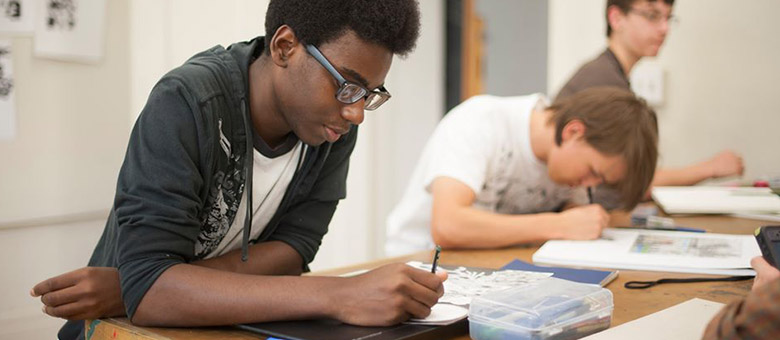Last updated on July 1, 2020
This material was written by a Dallas College licensed counselor. All views expressed in this piece are their own and do not necessarily reflect the views of Dallas College.
Everywhere we look on social media, we see images and read headlines about racial tension. This can have a powerful emotional impact and can occupy much of our thoughts and feelings.
For many of us, these headlines may bring back memories of experiences in our lives that we believe were influenced by race, made us feel unsafe, afraid, sad, hurt, betrayed, confused or that we were mistreated. Perhaps we felt vulnerable, powerless and maybe some initial shock. We were traumatized and those memories and feelings come flooding back as we watch these images and read these stories.
Even if we haven’t personally had these experiences, these stories might still have an impact. Some of us have witnessed them happen or had a loved one share an experience with us.
We need to talk to others who have had similar experiences, who understand and care about our feelings and can offer us support. There are groups in our community and at our college that understand these feelings and provide support. If you have had these types of experiences, please find a group to talk to about them.
What many of us do not realize is that if we have ever had a traumatic experience in our lives unrelated to race, those feelings may come back when we see images or read stories where others are having those or similar feelings. We may have hidden those feelings away, have forgotten or tried to ignore them. But these powerful images or stories bring them back to the surface – we may have begun to feel unusually anxious or sad or confused lately, had trouble concentrating or had our thoughts wander or trail off.
These are those old feelings coming back and our fighting not to feel them, which is just a short-term solution. We need to talk to someone and tell them our story and experiences. Again, someone who will understand us, care about us and support our emotions. This can be family, friends, neighbors, or spiritual leaders. You can also talk to one of the friendly, trained, licensed counselors from the college. Plus, it’s free and confidential.
These are emotional and intense times. We will each respond to our community’s current issues in our own way, but however you choose to respond, please stay in touch with your feelings and please take care of them.
Again, please be aware of the resources Dallas College makes available to you.
Student Life
If you’re getting restless at home or want to speak with like-minded students that have the same goals and interests as you do, the college’s Student Life teams are proud to provide a variety of opportunities for personal and professional development – even in a virtual learning world.
Each campus is home to a fun-loving Student Life team that hosts a variety of student-focused activities. Learn how your college is exploring culture and diversity, skill-building workshops, fitness and recreation, advocacy and more by visiting Dallas College’s Student Life Page.
Dallas College Online Counseling for Students
Safe and secure mental health counseling sessions are now available for currently enrolled students through WebEx.
Interested in scheduling an online counseling appointment? All you need to do is contact your campus Counseling Center at the email address listed below. From there, a member of your campus Counseling Center team will provide you a URL web link to complete and submit your intake and consent forms. Please allow yourself about 15-20 minutes to complete them online. After submitting the forms, you will be able to schedule an appointment with a counselor.
Upon scheduling an appointment, a member of the Counseling Center team will email you a WebEx calendar invite with the time and date for your session. Please click on the unique link in the calendar invite to join via video or call the number provided to speak with the counselor via phone at the scheduled time.
Brookhaven Campus Counseling Center: bhccounseling@dcccd.edu
Cedar Valley Campus Counseling Center: cvccounseling@dcccd.edu
Eastfield Campus Counseling Center: jasminegarcia@dcccd.edu
El Centro Campus Counseling Center: ECCStudentCounseling@dcccd.edu
Mountain View Campus Counseling Center: jgonzalez@dcccd.edu
North Lake Campus Counseling Center: nlccounseling@dcccd.edu
Richland Campus Counseling Center: Counseling-RLC@dcccd.edu
Please note: If you are experiencing a mental health crisis, please call 9-1-1 or visit the nearest hospital emergency room rather than request an online counseling session.
Community Mental Health Resources Available in Our Area
- North Texas Behavioral Health Authority can help pay for community psychiatric, mental health and substance abuse services – please call 214-366-9407.
- Suicide and Crisis Center of North Texas – please call 214-828-1000.
- National Veterans Crisis Line – please call 800-273-8255 and press 1.
- National Domestic Violence Hotline – please call 800-799-7233.
- National Sexual Assault Hotline – please call 800-656-4673.
- Message 741741 from anywhere in the United States to text with a trained crisis counselor. Heads up — standard messaging rates may apply.
It’s okay to say. If you see something that could be helpful to someone else – spread the word and share this information. Even if you’re not dealing with a specific mental health issue, chances are someone you do know is.
